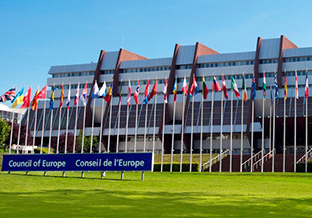
Jun 19, 2018 | Advocacy
The ICJ welcomes the proposal of the Parliamentary Assembly of the Council of Europe (PACE) in its Recommendation 2121(2018) calling for the development of a Council of Europe Convention on the Profession of Lawyer.
The ICJ believes that such a Convention could make an important contribution to strengthening the rule of law and the protection of human rights in the Council of Europe region, building on existing Council of Europe standards and jurisprudence of the European Court of Human Rights.
The ICJ particularly welcomes PACE’s call for an effective control mechanism to be put in place under a new Convention, as recent developments in a number of Council of Europe Member States show a significant gap in implementation of Council of Europe standards on the independence and security of lawyers.
Lawyers, along with judges and prosecutors, are one of the pillars on which protection of the rule of law and human rights through the justice system rests.
Recognizing this, the ICJ, since its foundation in 1952, has worked to protect lawyers under threat and to develop international standards for the independence, role and integrity of the profession.
Successive ICJ Declarations, adopted by leading jurists from all regions of the world, have affirmed that the role of the legal profession is “paramount in safeguarding human rights and the Rule of Law” (2008 Declaration on Upholding the Rule of Law and the Role of Judges and Lawyers in Times of Crisis (ICJ 2008 Declaration).
In any legal system, the legal profession plays a pivotal role in ensuring access to justice and effective remedies and accountability for violations of human rights, as well as upholding the right to fair trial, right to liberty and freedom from torture and other ill-treatment in the criminal justice process.
In defending criminal cases, in advising and representing victims of human rights violations and their relatives or in challenging before the courts national legislation or policy that is contrary to human rights , lawyers give practical effect to human rights guarantees and rule of law principles.
The importance of this role has been recognized by international standards as well as in the jurisprudence of the European Court of Human Rights, which has emphasized the “specific status of lawyers [having] a central position in the administration of justice as intermediaries between the public and the courts”.
It is thus of fundamental importance that lawyers are able to fulfill their professional duties without interference. As the European Court of Human Rights has held, “persecution and harassment of members of the legal profession strikes at the very heart of the Convention system.”
Full text in ENG (PDF): Europe-Drafting-a-EU-Convention-on-the-Profession-of-Lawyer-2018-ENG
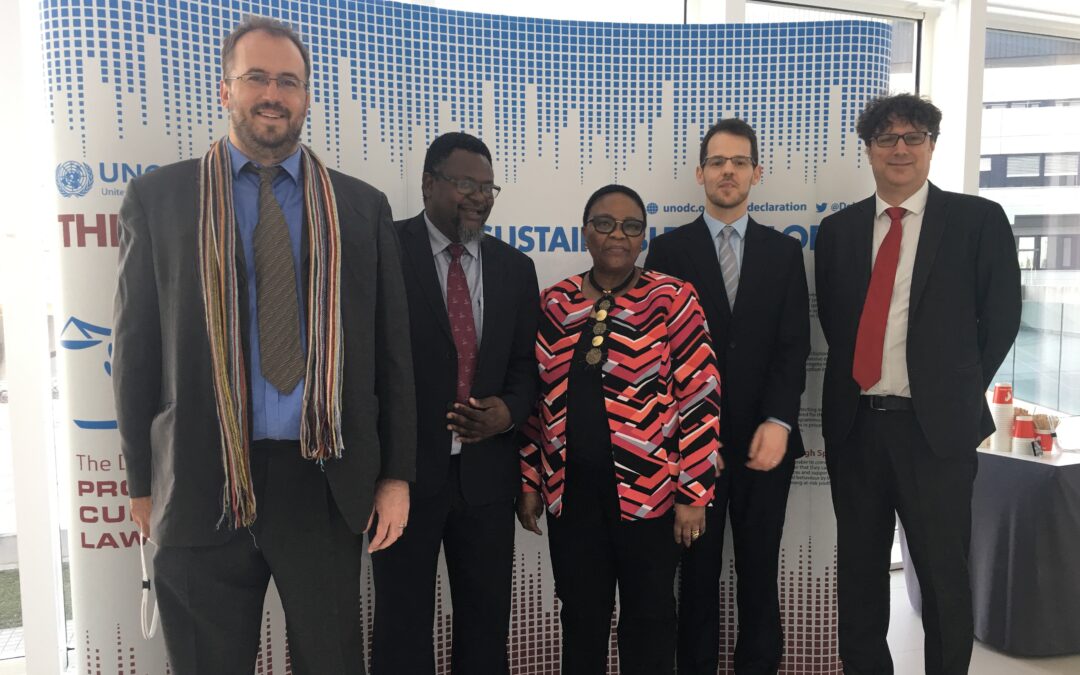
Apr 10, 2018 | News
The ICJ and its partner the Democracy Governance and Rights Unit (DGRU) of the University of Cape Town are holding a panel discussion on selection and appointment of judges within the auspices of the Launch of the Global Judicial Integrity Network.
This new Network is being launched by the UN Office on Drugs and Crime (UNODC) in Vienna, Austria on today.
The panel is aimed at discussing the implementation and monitoring of guidelines on the best practice for the appointment of judges (“guidelines”).
The Southern Africa Chief Justices’ Forum (SACJF) mandated the development of these guidelines through its Concluding Communiqué during the 2015 Annual Conference of East and Southern Africa Chief Justices, held at Victoria Falls in Zimbabwe.
The ICJ and the DGRU have been working on developing the guidelines, together with a subcommittee of the SACJF, with the aim of seeing them adopted at the SACJF’s annual general meeting to be held this year between August and September in Malawi.
“The UNODC Judicial Integrity Network launch in Vienna, Austria 9-10 April 2018 gives us an excellent opportunity to start thinking a bit further down the line, and identify, anticipate and develop responses to problems that may be experienced in implementing the guidelines at a national level,” said Arnold Tsunga, Africa Director of the ICJ.
While many very good standards have been developed and adopted in Africa in the field of human rights, rule of law, and good governance, a major challenge has been to see the standards implemented in practice.
“In addition to highlighting relevant global standards, the ICJ will also present its experiences from around the world in monitoring and overcoming obstacles to implementation of such guidelines,” said Matt Pollard the Director of the Centre for Independence of Judges and Lawyers at the ICJ.
“This should contribute to planning for effective implementation of the Southern African guidelines, and be of interest to the broader audience at the launch of the UNODC global network on judicial integrity.”
The panel to be moderated by Arnold Tsunga includes Hon. Sanji Monageng, ICJ Commissioner and Justice, International Criminal Court; Mr. Jan van Zyl Smit, Associate Senior Research Fellow, Bingham Centre for the Rule of Law; Mr. Christopher Oxtoby, Senior Researcher, Democratic Governance and Rights Unit, University of Cape Town; Mr Matt Pollard, Senior Legal Adviser and Director, CIJL, ICJ.
Fore more information contact Arnold Tsunga on arnold.tsunga@icj.org (+27716405926) or Matt Pollard on <matt.pollard@icj.org> (+41 79 246 54 75)
Universal – Vienna Panel on Selection – News – Webstory – ENG – 2018 (Further information in PDF)
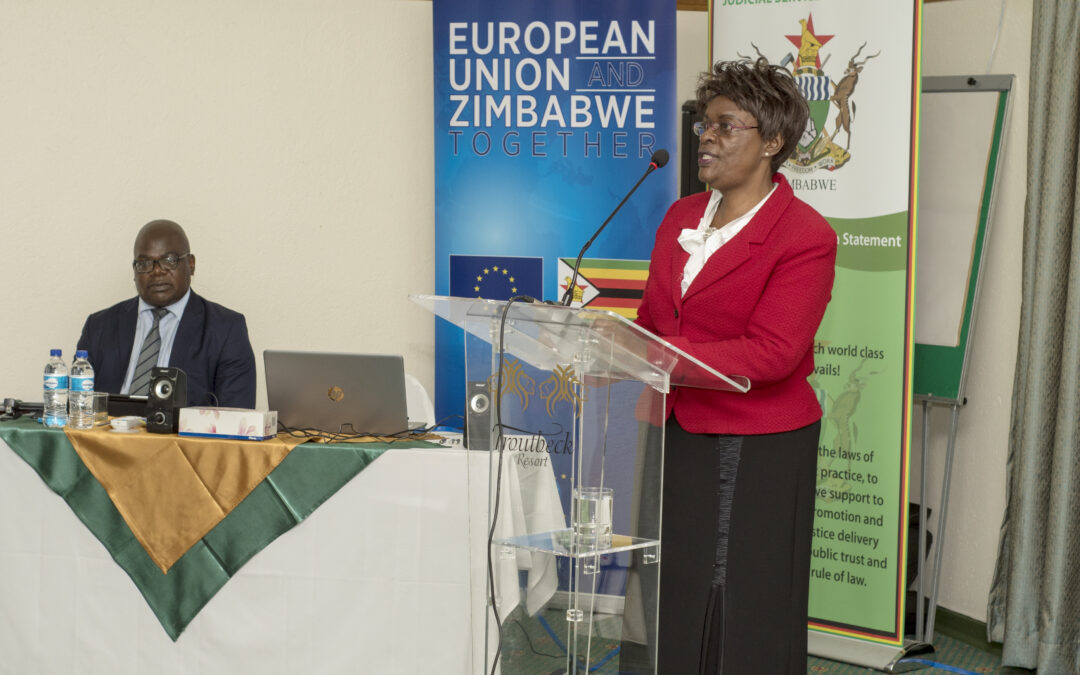
Mar 22, 2018 | News
The ICJ and the Judicial Service Commission (JSC) of Zimbabwe, are convening a three-day Orientation Workshop for newly appointed judges.
It is held until 24 March at Troutbeck Inn, Nyanga.
The workshop is the fourth such meeting that the ICJ and the JSC have convened with the support of the European Union.
The training provides a useful bridge for the new appointees as they transition from the bar to the bench.
The topics covered during the training include judgement writing, court procedure and decorum, substantive law, judicial independence and issues of integrity on the bench.
The Hon. Judge President Chiweshe in his opening remarks stated that the objectives of the workshop are to familiarize incoming judges with their new work environment and to acquaint them with the specific divisions of that court.
This is to prepare them for the full assumptions of work in the judiciary. Justice Chiweshe noted that each division, criminal, civil and family law, will expose the judges to its own activities, guided by the judge from that division.
After the training the hope is that the judges will be deployed to their respective regions and stations fully acquitted with the tasks before them and can dispense justice diligently, impartially, fairly, without fear, favour or promise.
In attendance at the first day of the workshop were 17 judges (four female and thirteen male).
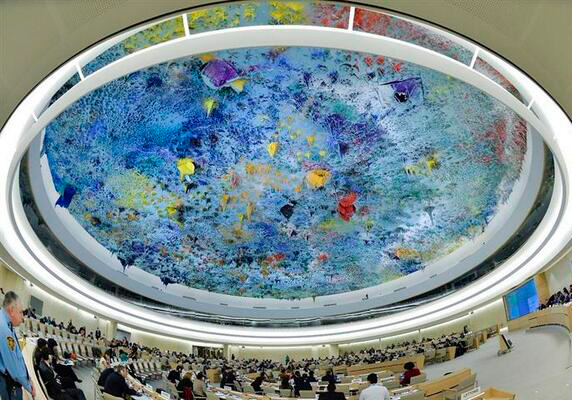
Jun 18, 2014 | Advocacy, Non-legal submissions
The ICJ delivered an oral statement to the UN Human Rights Council, during the interactive dialogue with the Commission of inquiry on the Situation on human rights in the Syrian Arab Republic.
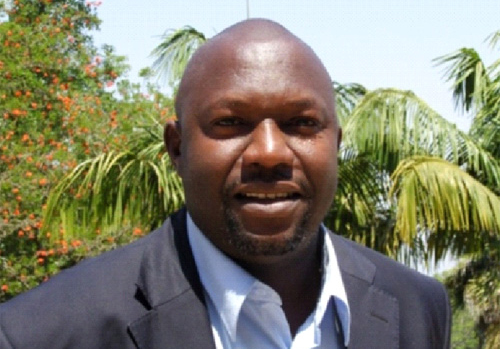
Jan 17, 2013 | News
 The ICJ expresses great concern over the recent pattern of attacks on human rights defenders in Zimbabwe by the Law and Order Section of the Zimbabwe Republic Police (ZRP).
The ICJ expresses great concern over the recent pattern of attacks on human rights defenders in Zimbabwe by the Law and Order Section of the Zimbabwe Republic Police (ZRP).
The ICJ says the systematic assault on human rights defenders has taken the form of arbitrary arrests of human rights practitioners, unjustifiable raids on their offices and interference with their meetings amongst other forms of harassment.
Such attacks have been a continuous source of international concern, including when raised by United Nations Human Rights Council in its Universal Periodic Review of Zimbabwe in 2011.
There has been a failure on the part of the Zimbabwe judiciary to exercise its responsibility of judicial oversight over these abuses, the ICJ adds.
“Government officials including the ZRP are using repressive laws to harass and intimidate human rights defenders and NGOs with the aim of causing them to abandon their work in promoting and defending human rights in Zimbabwe,” said Martin Masiga, Deputy Director of the Africa Regional Programme of the ICJ. “It is deplorable that the government has contrived to fabricate charges against its own citizens to discredit, delegitimize and frustrate their lawful civic activities.”
The ICJ underscores the reports of the arrest of Zimbabwe Human Rights Association (ZimRights) Director Okay Machisa (photo) on Monday, 14 January 2013 in Harare on charges of allegedly “conspiring to commit voter registration fraud and publishing or communicating falsehoods”.
The magistrate in this matter denied bail for reasons inconsistent with international fair trial standards and which appeared to be politically motivated.
The arrest of Okay Machisa follows the detention of his deputy, Leo Chamahwinya and three other staff members of ZimRights in December 2012 on the same charges.
These arrests occurred just a few weeks after ZimRights [publicly] denounced the trend of increasing police brutality across Zimbabwe and called for urgent action by competent authorities to address these human rights violations.
The Zimbabwean Constitution, the African Charter on Human and Peoples’ Rights and the International Covenant on Civil and Political Rights, to which Zimbabwe is a state party, guarantees the right to the freedom of opinion, expression and association.
The UN Declaration on Human Rights Defenders, which articulates universal standards for the protection of those working to protect human rights, affirms that “everyone has the right, individually and in association with others, to promote and to strive for the protection and realization of human rights and fundamental freedoms at the national and international levels “.
Accordingly, Zimbabwe has a legal obligation to protect those persons and organisations that strive for the protection and promotion of human rights.
Zimbabwe reportedly will hold national elections in 2013, the first since the formation of the Government of National Unity following the tragic events of the 2008 national election.
The ICJ insists it is essential for the people of Zimbabwe and for the advancement of Zimbabwe in the arena of constitutional democracy that State officials exercise their responsibility to protect human rights activists instead of attacking them.
The ICJ urges the Government of Zimbabwe to respect regional and international human rights standards, and to call upon its law enforcement agencies to cease the harassment and intimidation of HRDs in Zimbabwe.
The ICJ calls on the Zimbabwean judiciary to exercise its responsibility to uphold international fair trial standards and the constitutional provisions of Zimbabwe in adjudicating the matters relating to human rights defenders, including the officials of ZimRights.
Contact:
Martin Okumu-Masiga, Deputy Director of the ICJ Africa Regional Programme, t: +27110248268; e-mail: martin.okumu-masiga(at)icj.org










